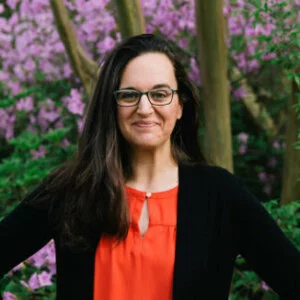In my last post, I raised some questions about the role of experience in our faith development. The fact that we learn from experience seems rather obvious. But what sorts of experiences are educative? Precisely how do we learn from experience? How can educators help others learn from their experiences?
Several education theorists have sought to answer those questions. Below I give very brief sketch of some of the key contributors to the experiential learning conversation.
John Dewey (1859-1952)
John Dewey wrote prolifically about education, especially on the schooling of children. He was heavily influenced by Hegel and Darwin. Dewey applied elements of naturalism, Darwin’s theory of evolution, and the scientific method to education.
Knowing that people learn from experience, Dewey sought to formalize his theory of experiential learning in Experience and Education (1938). For Dewey, truly educative experiences have the power to continue informing us and shaping us. Describing the goal of an experience-rooted education, Dewey noted, “The central problem of education based on experience is to select the kind of present experiences that live fruitfully and creatively in subsequent experiences” (p. 28).
Eduard C. Lindeman (1885-1953)
Eduard C. Lindeman wrote in the areas of adult education and community development. His experience in various jobs, college education at a land-grant university (now Michigan State), and work among both youth and adults no doubt contributed to his educational philosophy. Influenced by the thinking of his friend John Dewey, Lindeman wrote on the value of experience in adult learning.
In his 1926 The Meaning of Adult Education, he wrote,
The approach to adult education will be via the route of situations, not subjects…. Every adult person finds himself in specific situations with respect to his work, his recreation, his family life, his community life, etc. – situations which call for adjustments. Adult education begins at this point. Subject matter is brought into the situation, is put to work, when needed…. The resource of highest value in adult education is the learner’s experience…. Experience is the adult learner’s living textbook. (p. 9-10 qtd. in Knowles, The Adult Learner, p. 36).
David A. Kolb (1939- )
If you were to do a Google search on “experiential learning,” no doubt David Kolb’s name would appear in several of your results. Influenced by John Dewey as well as Jean Piaget and Kurt Lewin, Kolb sought to describe how we learn from experience in Experiential Learning: Experience as the Source of Learning and Development (1983).
Believing that learning happens as we interact with our environment, Kolb conceptualized the process by which we learn from experience as a learning cycle or spiral. Beginning with concrete experience, we proceed through reflective observation, abstract conceptualization, and active experimentation whereby we create new concrete experiences. Kolb built on his theory of experiential learning to identify four learning styles among adult learners. To this day, many in higher education rely on his Learning Styles Inventory to help students identify their personal learning styles as well as to design teaching methods to match those learning styles.
Jack Mezirow (1927- )
Jack Mezirow’s work on transformational learning theory is foundational in adult education studies today. Influenced largely by Paolo Freire and Jürgen Habermas, Mezirow focuses on how we make meaning in light of our experiences. He proposes that we can change, or transform, our “taken-for-granted” mental frameworks and habits of thought through reflection and discourse. As a result, we come to a better way of knowing because we have examined the assumptions under-girding our thoughts.
Mezirow has divided the transformational learning process into four parts: experience, critical reflection, reflective discourse, and action. In his mind, an experience called a “disorienting dilemma” triggers process. He explains the essentials of transformational learning theory in his chapter “Learning to Think like an Adult: Core Concepts of Transformation Theory” in Learning as Transformation: Critical Perspectives on a Theory in Progress (2000) by Mezirow and Associates.
——
Foundational to each of these men’s theories is a commitment to constructivism, a philosophical position holding that people make, or construct, knowledge about the world through reflection on their experiences. In other words, we each make meaning of reality based on our experiences; therefore, constructivism denies the existence of a single, objective reality. This philosophy provides a point of contention for Christians.
In my next post, I will address constructivism from a Christian perspective and discuss how Christians can adopt and adapt experiential learning theories and apply them to spiritual formation.
References:
Dewey, John. 1938. Experience and Education. Kappa Delta Pi.
Knowles, Malcolm S. 2011. The Adult Learner: The Definitive Classic in Adult Education and Human Resource Development. 7th ed. Oxford: Butterworth-Heinemann.
Kolb, David A. 1983. Experiential Learning: Experience as the Source of Learning and Development. 1st ed. Prentice Hall.
Lindeman, Eduard. 1926. The Meaning of Adult Education. New York: New Republic.
Mezirow, Jack. 2000. “Learning to Think Like an Adult: Core Concepts of Transformation Theory.” In Learning as Transformation: Critical Perspectives on a Theory in Progress, by Jack Mezirow and Associates, 3–33. San Francisco: Jossey-Bass.





Comments
Be the first one to make a comment!